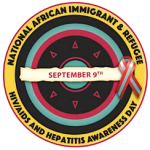 |
Gateway Apothecary
Saint Louis, MO
According to AIDS.gov, about 25 percent of people living with HIV in the United States are co-infected with the hepatitis C virus (HCV), and about 80 percent of people with HIV who inject drugs also have HCV. HIV co-infection more than triples the risk for liver disease, liver failure, and liver-related death from HCV. Co-infection can also complicate the management of HIV infection.
We are currently in the golden age for curing patients with HCV. All patients who are diagnosed with HIV should also be tested for HCV as well. The new therapies that have been approved by the Food and Drug Administration (FDA) now have a plus 90 percent cure rate. The only regimens that should be used today to treat patients who are co-infected with HIV and HCV are Sovaldi (sofosbuvir) or Olysio (simeprevir). There may be additional HCV drugs recommended for HIV co-infected patients by the end of 2014 or in 2015.
The older regimens that were approved in 2011 should no longer be used for the treatment of HCV. The American Association for the Study of Liver Disease (AASLD) and the Infectious Disease Society of America (IDSA) have created guidelines for treatment of the hepatitis virus depending on the genotype for the patient.
Sovaldi and Olysio have specific drug interactions with HIV medications. For Sovaldi, use any antiretroviral (ARV) medications except: didanosine, zidovudine and Aptivus (tipranavir). For Olysio, only use the following ARVs: Isentress (raltegravir), Edurant (rilpivirine), Selzentry (maraviroc), Fuzeon (enfuvirtide), Viread (tenofovir), Emtriva (emtricitabine), Epivir (lamivudine), Ziagen (abacavir). Talk with your pharmacist and HIV provider before starting any medication for hepatitis.
Go to hepmag.com for more information about co-infection.
Additional writing by Amanda Wong, student pharmacist at the St. Louis College of Pharmacy.







Comments
Comments